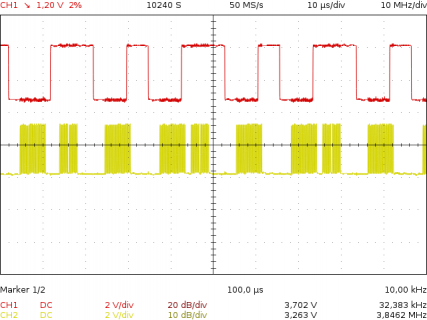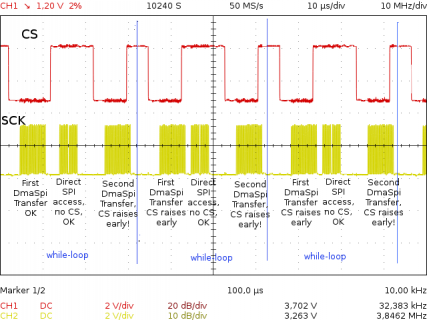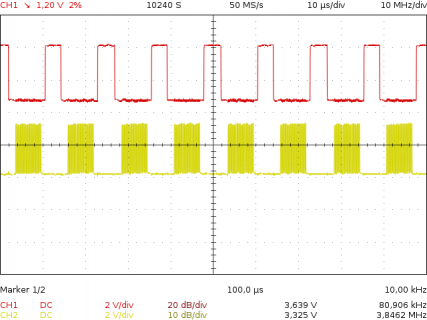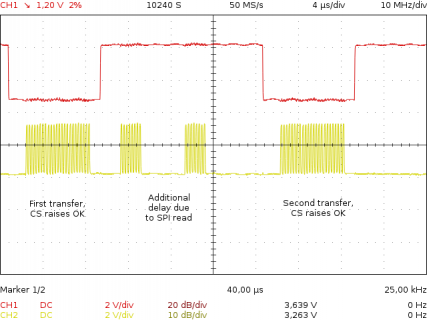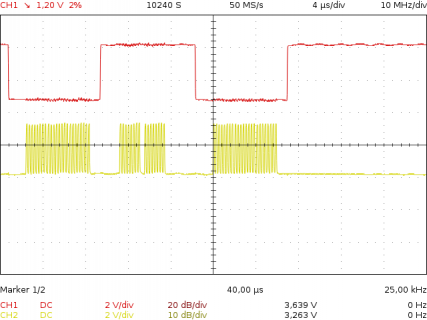jbliesener
Well-known member
I already tried lots of things:
Nothing really helped... Maybe it's a matter of sequencing those blocks correctly, but I admit that I'm lost...
Code:
while (SPI0_TCR!=tcrEnd); // wait for last increment of TCR
SPI0_SR = SPI_SR_TCF; // reset TCF
// clear DMA int
DMA_CINT = DMA_CINT_CINT(DMASPI0_RXCHAN);
DMA_CERQ = DMA_CERQ_CERQ(DMASPI0_TXCHAN);
// reset SPI
SPI0_SR = 0xFF0F0000;
SPI0_MCR |= SPI_MCR_CLR_RXF | SPI_MCR_CLR_TXF;
SPI0_TCR = 0;Nothing really helped... Maybe it's a matter of sequencing those blocks correctly, but I admit that I'm lost...


